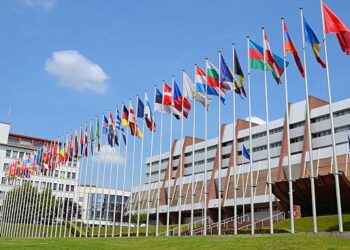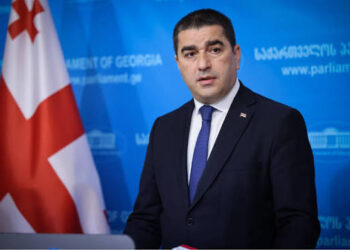The European Commission on Thursday afternoon welcomed the approval of the eighth package of tough measures on Russia by the European Council. This package, which is closely coordinated with international partners, responds to Russia’s ongoing escalation and illegal war against Ukraine, including illegal annexation of Ukrainian territory based on sham “referendums,” mobilization of additional troops, and issuing open nuclear threats.
Additional export restrictions have been imposed, aiming to limit Russia’s access to military, industrial, and technological assets, as well as its defense and security sectors. This includes a restriction on the export of coal and specified electronic components, aviation-related technical products, and certain chemicals. The Anti-Torture Regulation now includes a restriction on the export of small guns and other commodities.
Further import restrictions totaling about €7 billion have been agreed upon. It prohibits the import of Russian finished and semi-finished steel goods, equipment and appliances, plastics and appliances, cars, textiles, footwear, leather, ceramics, some chemical items, and non-gold jewelry.
The package unveiled Thursday signals the start of the EU’s implementation of the G7 accord on Russian oil exports. While the EU’s embargo on buying Russian seaborne crude oil remains in place, the price cap, if adopted, would allow European operators to undertake and assist the shipping of Russian oil to third countries as long as the price remained below a pre-set “cap.” This will serve to lower Russia’s income even further while maintaining global energy markets stability through ongoing deliveries. It will fight inflation and stabilize energy costs at a time when high expenses, notably higher fuel prices, are a major issue for all Europeans.
This policy is closely coordinated with G7 partners. Going into effect after 5 December 2022 for crude, and 5 February 2023 for refined petroleum products, pending a subsequent Council resolution.
The current package prohibits EU nationals from serving on the boards of directors of some state-owned firms. It also prohibits any dealings with the Russian Maritime Register, adding it to the list of state-owned firms barred from conducting business.
Prohibiting all crypto-asset wallets, accounts, or custody services, regardless of the value of the wallet strengthened existing crypto-asset bans. The package broadens the spectrum of services that may no longer be offered to the Russian government or legal entities created in Russia, including IT consulting, legal advice, architectural, and engineering services. These are crucial and may damage Russia’s industrial capabilities because they are heavily reliant on importing these services.
More people and organizations have been sanctioned. This is directed towards people participating in Russia’s occupation, illegal annexation, and bogus “referendums” in the occupied areas. Individuals and businesses working in the defense industry, such as high-ranking and military officials, as well as enterprises assisting the Russian armed services, are also included. The EU also continues to tackle those that propagate war-related misinformation.
The EU’s restrictive measures are aimed at top decision-makers, oligarchs, senior military officials, and propagandists who have been accused of undermining Ukraine’s territorial integrity.
The geographical scope of the restrictive measures imposed in response to the recognition of non-government controlled areas in Ukraine’s Donetsk and Luhansk oblasts, as well as the deployment of Russian armed forces in those areas, has been expanded to include all non-government controlled areas in Ukraine’s Donetsk, Luhansk, Zaporizhzhia, and Kherson oblasts.
The EU has proposed a new listing criterion that will allow it to penalize those who aid violations of the prohibition on penalty circumvention.
The European Commission claims the EU’s sanctions on Russia are working, undermining Russia’s capacity to produce new weapons and maintain current ones, as well as obstructing material transfer.
By Sophie Hodler














